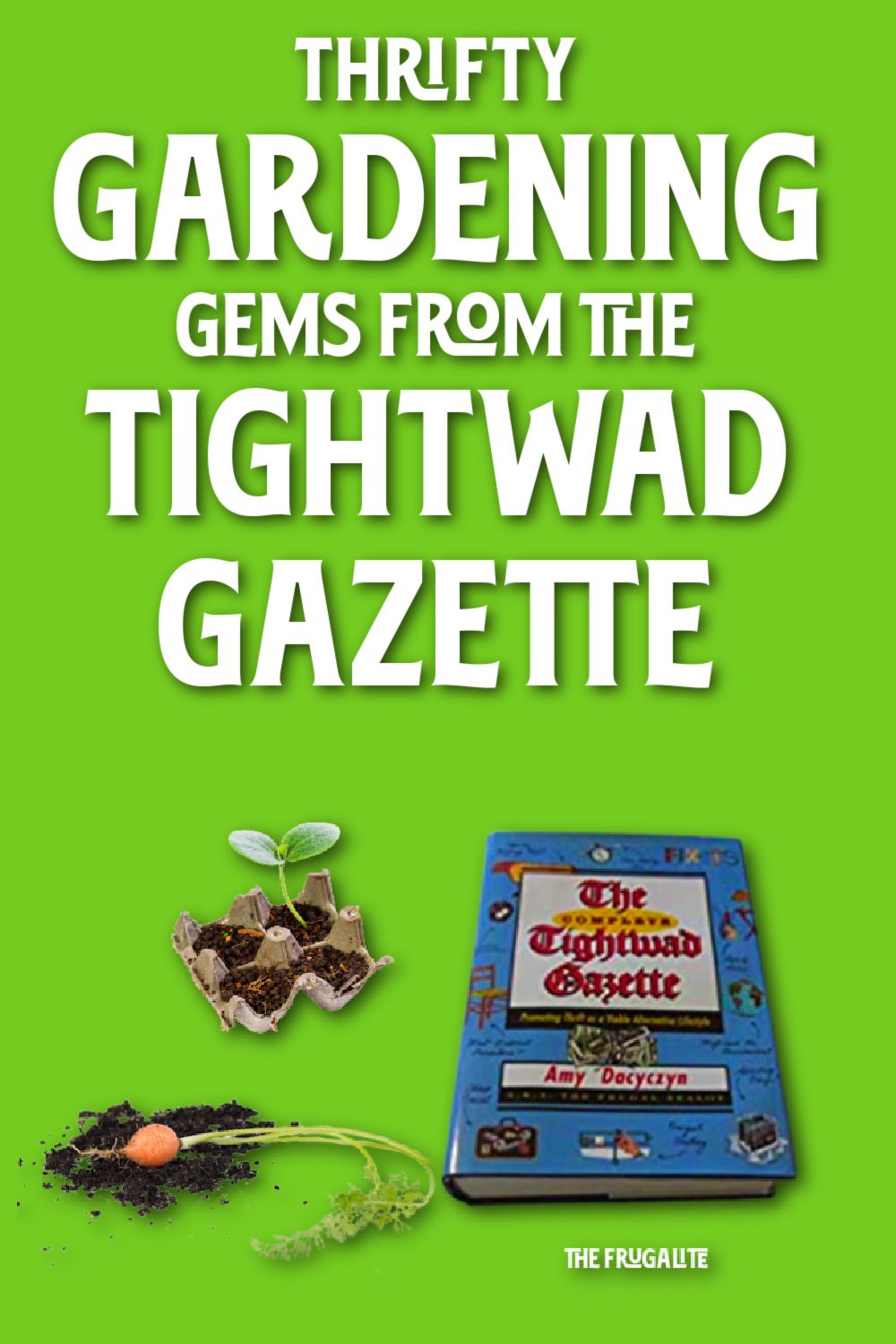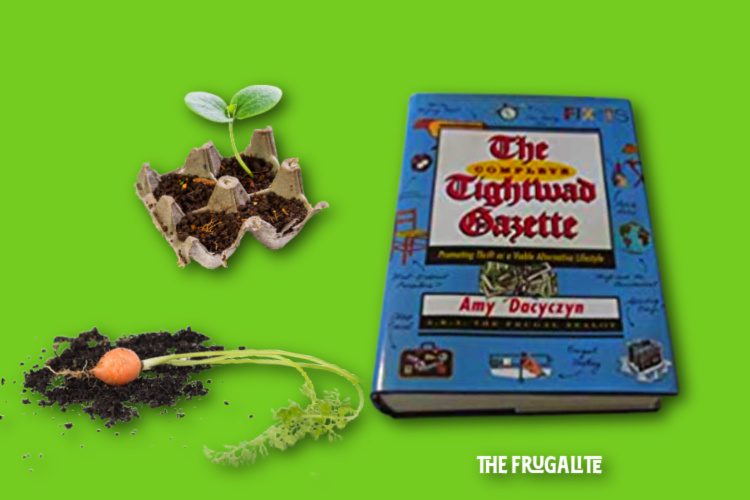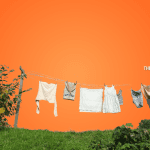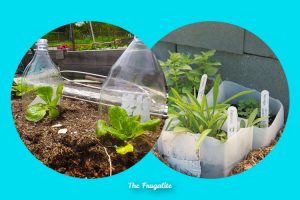(Psst: The FTC wants me to remind you that this website contains affiliate links. That means if you make a purchase from a link you click on, I might receive a small commission. This does not increase the price you’ll pay for that item nor does it decrease the awesomeness of the item. ~ Daisy)
Despite the snow on the ground in my area, I’m thinking gardening! Being March, it’ll melt soon into Mud Season, then it’ll become time for planting. Right now, it’s time for planning! Fortune favors the prepared mind. If you’re looking for resources to help you get started, read on!
- I’ve written about putting pencil to paper and making a garden plan here
- Joanna wrote about her methods here
- You can read about apartment and condo gardening here
- Catch up on my experiences in my first year at my community gardens plot here
- If you’re going hardcore, check out our course, The Home Agriculture Comprehensive
- Our friends at the family-owned Seeds for Generations offer an epic FREE garden planning calculator here
- Check out the number of things that can be repurposed for the garden here
Tips from a favorite book
That last one got me thinking: what does the Tightwad Gazette have to say about gardens and gardening? I mentioned their advice about renting tools in another article. If all you need is a rototiller for one day, renting is far cheaper than buying. Buying used or borrowing from a friend can also work. Active frugality via gardening is discussed on page 344:
“I would much rather be working in the garden, with dirt squishing up between my toes, than buying cases of vegetables at the warehouse store. Because I like gardening, we employ active frugality to get our vegetables.”
I totally agree! Let’s unpack that a bit. By gardening, we get our vegetables. We also get fresh air, sunshine, and exercise. Garden soil has been found to contain antidepressant microbes as well. If you’re in a community garden plot you might meet a few like-minded neighbors. The kids can learn teamwork and responsibility. And best of all: this is free! OK, the garden plot cost me a whopping $15. I pulled a few hundred dollars in vegetables out of it last year. Gardening has also helped me manage the stress of the past few years.
Free stuff for the garden
There’s good advice for container gardening on pages 209-210. One example is getting the 5 gallon bucket for free and drilling holes in the bottom for drainage. While she suggests health food stores and Dunkin’ Donuts, I’d point out that most restaurants use these. While they might not be free for the taking, they might be very cheap. The store might be very happy to get rid of something they’d otherwise have to pay to get rid of.
Another thing they might let go of cheaply or free is cardboard, which is useful as mulch to suppress weeds. The Gazette also mentions mixing your own soilless mix in this section. Read more about doing that here.
Garden economics
You’ll find more tips in frugal gardening on pages 670-672, including an interesting breakdown in the economics. Her numbers are old if she’s buying a quart of anything for $1, but I agree that the superior taste, nutrition, and quality family time is well worth it.
These days everything is much more expensive, including the farmer’s market. However, I’d rather give the money directly to my farmer than include several middleman types. Farmers often sell their crops to a company that picks and processes the vegetables. That company is either owned by a grocery store’s parent company or sells to one. I’d rather just give it to my local family farmer.
Digging on a dime
Other great tips on those pages include growing from seed if you can, designing your garden based on your space, and choosing varieties that do well in your climate.
One noteworthy tip: don’t buy all of that expensive paraphernalia from catalogs! It’s totally unnecessary. As she notes: “egg cartons can be seed starters, plastic milk jugs can serve as mini-greenhouses, and scavenged lumber and old windows can make cold frames.” Please see above for the article on repurposing things for the garden. There are a number of uses for old milk jugs!
Do you keep fish, or know someone who does? The aquarium water is awesome for watering plants! As noted on page 217: “it’s tepid and contains algae and other organic waste, which is nourishing for both house and garden plants.” Hmm, free fertilizer, anyone?
What about mulch? That’s a wonderful thing used to suppress weeds and add nutrients to your soil! Amy notes on page 468 that it’s possible to get it for free. In this case, the reader noticed some tree cutters in the area working and asked them if they needed a place to dump the mulch before going on to the next job. Enough was dumped in their yard to mulch quite a bit! As I said above: fortune favors the prepared mind. I’ve found that good fortune is often simply the recognition and proper exploitation of opportunity.
There’s an interesting tidbit on page 829: scavenging from abandoned houses. This reader called City Hall about one and ended up with five addresses plus owner contact information. The two owners who gave permission owned old farms, and the reader walked away with “rose bushes, bugle vines, hydrangeas, and enough of a fieldstone retaining wall to make a walkway.” Rose hips are an excellent source of vitamin C, and bugle-aka-trumpet vines are poisonous to humans, but pollinators love them, and what’s not to love about free pavers?
Become a master gardener!
Are you interested in becoming a Master Gardener? While it’s no longer free, as is stated on page 589, it is quite cheap. My program was $95 back in 2017 and included 30 hours of class time and a book I still use today.
I had to complete 24 hours of service in one of their projects, but that was fine. I met some cool people and helped a project that gives fresh food to the homeless, so I had a good feeling in my heart too. Skills go with us wherever we go, right? Garden and learn!
This book is old but SO worthwhile.
There are so many more awesome tips in the Tightwad Gazette that I can’t possibly list all of them in one article. She discusses compost, slings & ties, deer repellent, gardening on vacant lots, and so much more. My copy has more than paid for itself over the years, and yours might too.
Are you a Tightwad Gazette fan? Do you garden dirt cheap? What frugal tips do you have for gardeners? Please tell us in the comments section!
About Amy Allen
Amy Allen is a professional bookworm and student of Life, the Universe, and Everything. She’s also a Master Gardener with a BS in biology, and has been growing food on her small urban lot since 2010.












4 thoughts on “Thrifty Gardening Gems from the Tightwad Gazette”
I was a Tightwad Gazette subscriber back in the day and have the complete book. I’m also a member of the Facebook tightwad group. While I’m not a fan of all of their ideas, I love the sharing and the weekly ‘ chunter’ (complain away) post.
The article mentions free mulch. There’s a web site getchipdrop that you sign up and they have tree services around the U.S. that are also signed up. They’ll drop off the chips. In my metropolis of around 600k people, there are about a dozen tree services in the area. It works for them because they don’t have to pay to dispose of the chips.
A few things to keep in mind:
– It is free however you can also choose to include a tip to the tree service so you’ll probably get your delivery before those who sign up without a tip.
– You can request a quantity, but don’t count on that. You may get a lot more or less. The tip option also increases your odds to get a delivery quantity closer to your request. Keep in mind, this isn’t for a few bags from the gas station quantities. This is for cubic yards.
– This is fresh wood chips so there will be some green material included.
– In addition to chips, you can also request larger wood such as logs.
If you do go to their web site definitely watch the video in the “Gardeners” page.
I’m not sure what garden plants are subject to juglone toxicity from walnut trees, the chips, leaves, etc. from walnut will contain it.
Here’s a simple gardening “hack” that I just had to share. If you are trying to regrow kitchen scraps, such as green onions or the bases of shallots, it can be tough to prop them so part of the plant is in water and part of the plant is out. I found that if you use nut hulls, like walnuts, hazelnuts, almond shells, etc, you can easily support the scraps while growing so they don’t rot. The hull seems to give a bit of nutrition to the growing plant and I’ve had much faster growth using this method.
Once you have enough root development, you can then place the regrown scraps into dirt, but the hulls will be easy to move aside. You can then compost them or reuse them. They are supportive without crushing tiny roots!